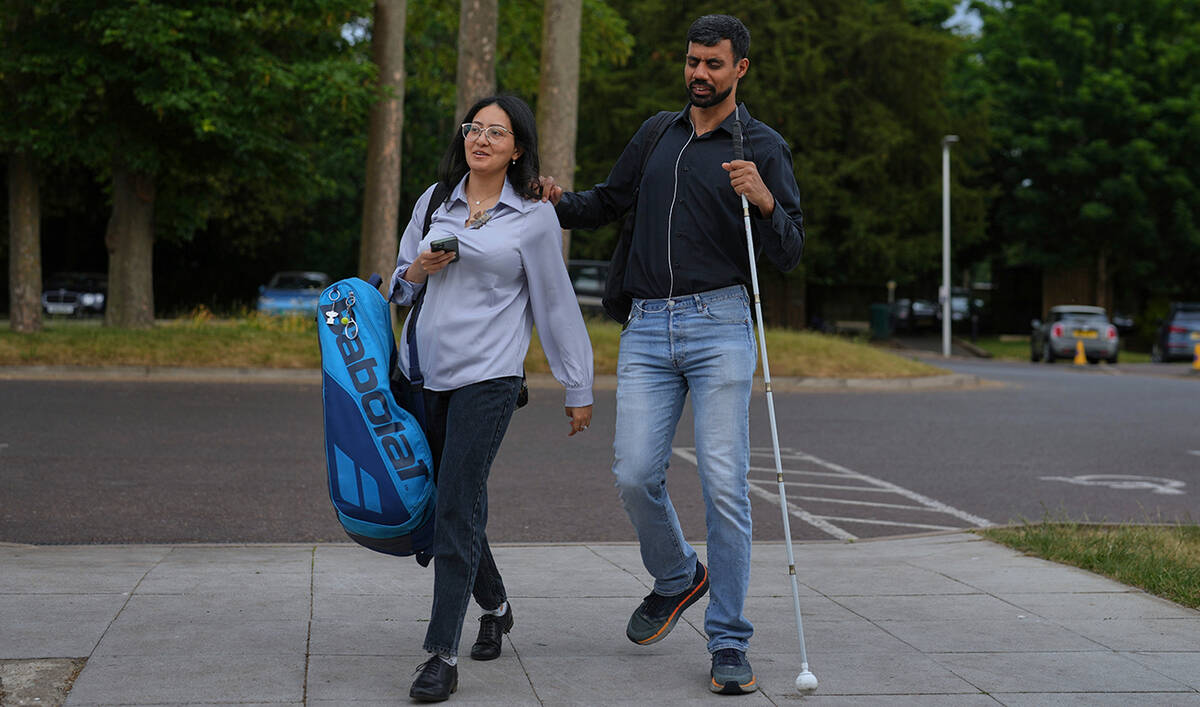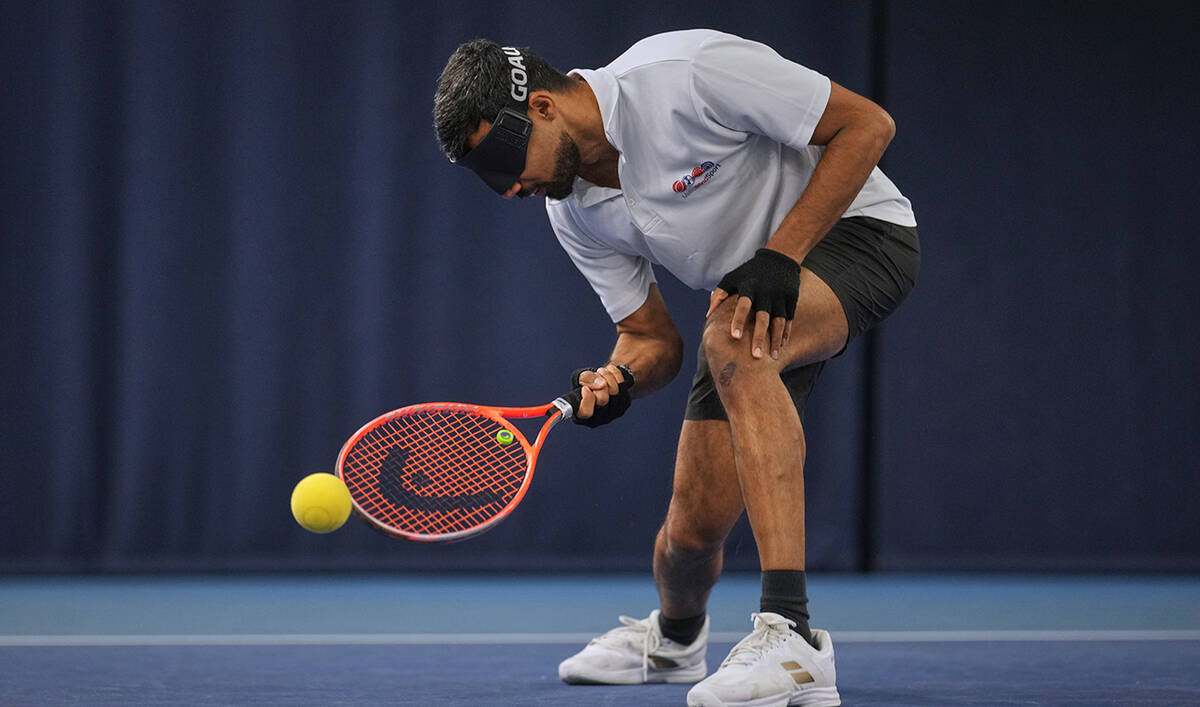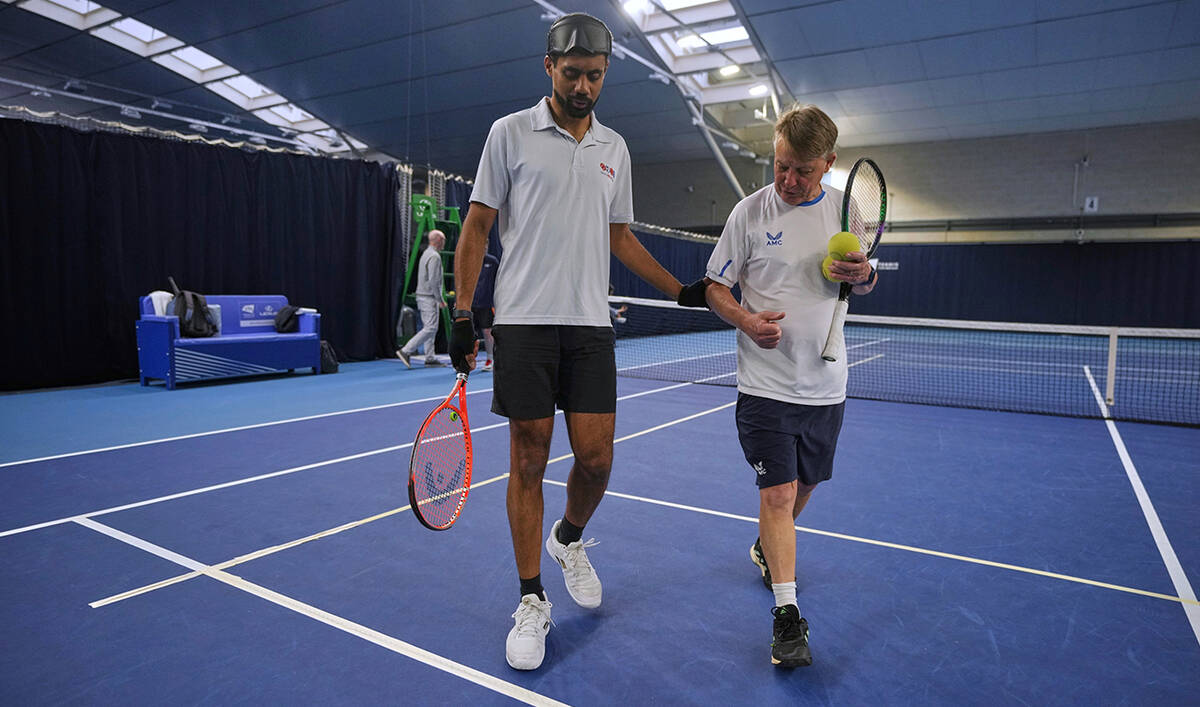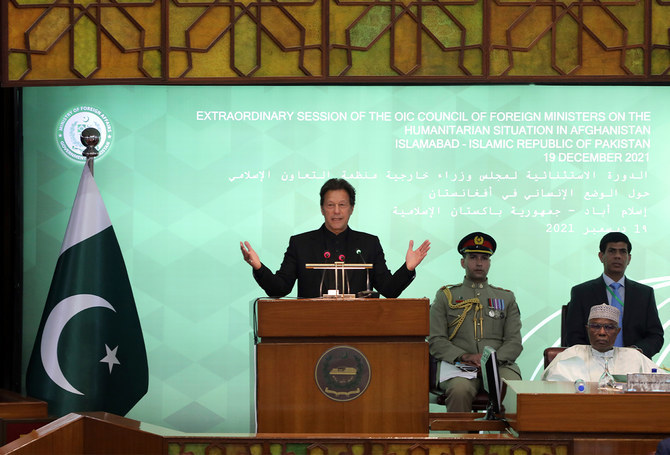ISLAMABAD: Prime Minister Imran Khan has said that the two-day meeting of the Council of Foreign Ministers (CFM) of the Organization of Islamic Cooperation (OIC) in Pakistan is taking place at a critical moment in world history, asking Muslim countries to prepare themselves for emerging global realities.
Pakistan will host the 48th session of the OIC CFM conference in Islamabad starting March 22.
The meeting is annually held to take important decisions and adopt new policies by OIC member states.
“Structures of the global security and economic order established in 1945 have been eroded by the repeated unilateral use of force, a new ‘cold war’ and growing inequalities among and within nations, exacerbated by the COVID-19 pandemic, the impact of climate change and the technology revolution,” the prime minister wrote in an article exclusively published by Arab News. “Islamic countries must carefully navigate these ‘new realities’ and actively shape the emerging world order to realize their individual and collective interests.”
However, Khan maintained the Muslim world should focus on internal disputes instead of getting involved in great power rivalries. He also emphasized that Islamic countries should do their best to prevent foreign interference and intervention.
Given the volatile situation of the world, the prime minister asked the OIC member countries to think in terms of developing their own security architecture.
“The OIC should seriously consider establishing its own peace and security architecture to promote conflict resolution through dialogue and negotiations whenever disputes arise among Muslim countries or between them and non-Muslim countries or entities,” he maintained.
Khan added the OIC must continue to support the just causes of Palestine and Kashmir for self-determination and liberation from foreign occupation.
“Although these goals are daunting,” he continued, “I am convinced that the arc of history bends toward justice.”
He also emphasized the significance of resolving conflicts in Syria, Libya and Yemen while pointing out it was the first time in 40 years that Afghanistan had got a “real opportunity” to restore peace and security.
He noted that the Muslim world should join other developing countries in mobilizing resources for recovery from the coronavirus pandemic and demanded fair and equal treatment in the international finance, trade and taxation architecture.
Referring to one of the major causes championed by his administration, Khan said: “We must boldly arrest and reverse the outflow of billions of dollars each year from our countries to ‘safe havens’ through corruption, fraud, tax evasion and tax avoidance.”
He also urged OIC nations to prepare themselves for a knowledge-driven, integrated and digital global economy of the future.
“Finally, we must promote global respect for our faith, Islam, and offer protection to every Muslim everywhere. We must object vigorously to the defamation or denigration of Islam, our Holy Book or our Holy Prophet, peace be upon him,” he maintained.
PM Khan urges OIC nations to brace for ‘new realities’ amid shifting world order
https://arab.news/rzte8
PM Khan urges OIC nations to brace for ‘new realities’ amid shifting world order

- In an exclusive article for Arab News, Khan says the OIC must consider developing its own peace and security architecture
- The prime minister says Islamic countries should resolve internal disputes instead of getting involved in great power rivalries
Pakistan PM to begin five-day tour tomorrow of Central Asia, Turkiye and Iran

- The development comes two weeks after Pakistan and India traded missile, drone and artillery strikes before agreeing to a truce on May 10
- During the four-day conflict, several friendly nations supported Pakistan’s demand for a probe into an attack that triggered the standoff
ISLAMABAD: Prime Minister Shehbaz Sharif will embark on Sunday on a five-day tour of Turkiye, Iran, Azerbaijan and Tajikistan to hold discussions about matters of regional and international importance, the Pakistani foreign office said, weeks after a military conflict between Pakistan and India.
Pakistan and India this month traded missile, drone and artillery strikes for days, killing 70 people, before agreeing to a US-brokered ceasefire on May 10.
The conflict was triggered by an attack on tourists in Indian-administered Kashmir on April 22 that New Delhi blamed on Pakistan. Islamabad denies complicity.
During the conflict Several friendly nations supported Pakistan’s demand for a credible, international probe into the attack as they urged the nuclear-armed archfoes to exercise restraint.
“The prime minister will have wide-ranging discussions with the leaders of these countries on an entire range of issues covering bilateral relations and matters of regional and international importance,” the Pakistani foreign office said.
“He will also have the opportunity to express the deepest appreciation and acknowledgment for the support extended to Pakistan by the friendly countries during the recent crisis with India.”
Bitter rivals India and Pakistan have fought three wars, including two over the disputed region of Kashmir, since gaining independence from British rule in 1947. Both claim the Himalayan territory in its entirety but rule it in part.
The latest conflict between the two was the deadliest in more than two decades and raised fears that it could spiral into a full-blown war.
During his visit aimed at furthering Pakistan’s diplomatic outreach, Sharif will also attend the International Conference on Glaciers in Dushanbe, Tajikistan, according to the Pakistani foreign office.
The conference, to be held on May 29-30, aims to advance global efforts in climate adaptation and resilience, with a specific focus on addressing glacial melting.
Pakistan is highly vulnerable to climate change, facing numerous impacts like rising temperatures and increased frequency of extreme weather events.
Officials say unusually high temperatures in Pakistan’s northern areas have resulted in rapid melting of glaciers, warning that the prolonged phenomenon could lead to water shortages and threaten lives in the longer run.
Alibaba launches online logistics services for Pakistani exporters

- Pakistani small and medium-sized enterprises have long struggled with optimizing their export processes to participate in global trade
- Alibaba says it has partnered with leading delivery companies to supporting the export of Pakistani goods to over 200 countries and regions
KARACHI: Alibaba, a Chinese-owned platform for global business-to-business (B2B) e-commerce, has launched online logistics services that are tailored to assist Pakistani exporters in optimizing their international trade processes, it said this week.
The explosive growth of cross-border e-commerce has created new opportunities for Pakistani small and medium-sized enterprises (SMEs), which face significant challenges in optimizing their export processes to participate in global trade. Logistics has been identified as a major obstacle as businesses must find effective and reliable shipping solutions to ensure timely deliveries while minimizing costs and risks, according to the e-commerce giant.
Alibaba has partnered with leading international express delivery companies, such as CPEX, with the goal of supporting the export of Pakistani goods to over 200 countries and regions around the world. The service not only supports fast and reliable international shipping options but also integrates the entire logistics process from packaging and warehousing to delivery, thus helping businesses optimize costs and time.
Through its international express delivery partners, Alibaba will ensure that goods are transported safely and on schedule, while also providing detailed order tracking tools, and customs advisory services. These features will help businesses minimize risks and enhance their competitiveness in the international market.
“Online logistics services are essential for small and medium-sized enterprises in global trade. They not only streamline operations and reduce costs, but also empower businesses to reach global markets with ease,” said Summer Gao, head of global supply chain at Alibaba.
"By leveraging advanced technologies and comprehensive solutions, Alibaba.com helps support Pakistani SMEs in enhancing their competitiveness, ensuring timely deliveries, and responding swiftly to market demands, ultimately fueling their growth and success in the global arena."
Pakistan, which is currently treading a long path to economic recovery, has urged local businesses to increase exports as the government looks to boost trade and investment to revive the over $350 billion South Asian economy.
Launched in 1999, Alibaba serves buyers and suppliers from over 200 countries and regions around the world. It is engaged in services covering various aspects of commerce, including providing businesses with tools that help them reach a global audience for their products and helping buyers discover products, find suppliers and place orders online fast and efficiently.
The e-commerce giant said its logistics services for Pakistani sellers are cost-effective, have enhanced order tracking and control capabilities, and offer a fully digitalized order fulfillment process for packages dispatched to multiple countries and regions.
“The introduction of Alibaba.com's logistics services has greatly accelerated our transaction processes and bolstered customer trust,” said Zulqarnain Baryar, CEO of Clush Industries that specializes in garment production.
"With features such as detailed tracking and optimized shipping routes, these services ensure timely deliveries and improved risk management. These enhancements have not only streamlined our operations but have also facilitated new business opportunities internationally, allowing us to confidently expand our presence."
Berry Ma, head of Pakistan business at Alibaba, said their new logistics services aim to support Pakistani exporters by providing efficient solutions to overcome traditional barriers in international trade.
“We're committed to offering essential tools to help Pakistani businesses tap into significant growth opportunities in global markets,” Ma said.
Pakistan PM says encouraging to see women like Naila Kiani setting records in mountaineering

- Kiani on Friday summitted Kanchenjunga to become first Pakistani woman to summit 12 ‘eight-thousanders’
- She stands on the threshold of joining only 17 women who have conquered all 14 peaks above 8,000 meters
ISLAMABAD: Prime Minister Shehbaz Sharif on Saturday praised Pakistani mountaineer Naila Kiani for scaling 8,586-meter Kanchenjunga, the world’s third highest peak, saying it was encouraging to see Pakistani women making records in such difficult sport.
With the ascent of Kanchenjunga on Friday, Kiani became the first Pakistani woman to scale 12 of the world’s 14 peaks above the height of 8,000 meters, according to Alpine Club of Pakistan (ACP), which arranges various expeditions.
The Pakistani mountaineer stands on the threshold of joining a global elite of only 17 women who have conquered all 14 eight-thousanders, Imagine Nepal, her expedition organizer, said after Friday’s summit.
“Pakistanis are making their country proud in every field of sports,” Sharif said in a statement. “It is encouraging to see Pakistani women setting records in a difficult sport like mountaineering.”
Kiani has previously summited Mount Makalu (8,485m), Broad Peak (8,047 meters), Annapurna (8,091 meters), K2 (8,611 meters), Lhotse (8,516 meters), Gasherbrum 1 (8,068 meters), Gasherbrum II (8,035 meters), Nanga Parbat (8,125 meters), Mount Everest (8,849 meters), Manaslu (8,156 meters) and Cho Oyu (8,201 meters) mountains.
The ACP described Kiani’s feat as a “monumental milestone” in the history of Pakistani mountaineering and a moment of immense national pride.
“From the towering heights of Everest and K2 to the perilous slopes of Annapurna and Lhotse, her journey tells a powerful story of grit, resilience and an unshakable will,” it said on Friday.
“This is not just a personal achievement— it is a symbol of empowerment for women in sports, a beacon of hope and inspiration for Pakistan, and a proud moment for every mountaineering enthusiast.”
Pakistan ranks seventh in civilian harm, second in IED casualties worldwide — report

- UK-based Action on Armed Violence monitor says Pakistan witnessed 790 civilian casualties in 248 incidents last years
- The Baloch Liberation Army killed and injured 119 civilians, followed by Daesh (45 casualties) and Pakistan Taliban (10)
ISLAMABAD: Pakistan ranked seventh in the world for civilian casualties from explosive weapons and second most affected nation in terms of casualties from improvised explosive devices (IEDs) last year, UK-based monitor Action on Armed Violence (AOAV) said this week.
In its annual report, the AOAV said it had recorded 67,026 deaths and injuries as a result of the use of explosive weapons around the world, which was the highest since 2010.
The report said 89% of 59,524 civilians were either killed or wounded by explosive weapons in 2024, adding that 41% of them, or 24,147 individuals, were killed in incidents of explosive violence.
Pakistan was the seventh most affected country for civilians harmed by explosive weapons last year, with 790 civilian casualties (210 killed) in 248 incidents, a 9% decrease from 2023. However, there was a 11% increase in incidents compared to 218 in 2023.
“The majority of civilian harm was attributed to non-state actors, who were reportedly responsible for 76% (603) of civilian casualties. In particular, the Balochistan Liberation Army (BLA) killed and injured 119 civilians in Pakistan last year,” the report read.
“The Islamic State (Daesh) affiliate in the region, Islamic State – Khorasan Province (IS-KP), was the reported perpetrator of 45 civilian casualties in Pakistan last year, down from 194 recorded civilian casualties in 2023. The Tehreek-e-Taliban Pakistan (TTP) killed and injured 10 civilians last year, down from 32 in 2023.”
Unknown non-state actors accounted for 54% of civilian casualties (423), down from 541 recorded in 2023, in Pakistan. The BLA was the reported perpetrator of 15% (119) civilian casualties, marking a 440% increase from 22 in 2023.
Pakistan is currently battling twin insurgencies: one led my religiously motivated groups, including the TTP, mainly in its Khyber Pakhtunkhwa (KP) province and the other by ethno-nationalist Baloch separatist groups like the BLA in Balochistan.
Islamabad has frequently accused Afghanistan and India of supporting the TTP, BLA and other militant groups who have mounted their attacks in Pakistan in recent years. Kabul and New Delhi deny the accusations.
In terms of IEDs, Lebanon saw the highest level of harm globally, with 3,373 civilians killed and injured across only 16 incidents, accounting for 58% of civilian casualties from IED attacks globally, according to the report.
Pakistan saw the second highest level of civilian harm due to IED attacks, with AOAV recording 485 civilian casualties (139 fatalities) in 132 incidents.
“This is a 30% decrease in civilian casualties, but an 8 % increase in incidents,” the monitor said.
Other countries which saw elevated levels of civilian harm from IEDs in 2024 included Nigeria (385 civilian casualties), Iran (378), Somalia (270), Syria (253), Afghanistan (170), and Myanmar (84).
Blind tennis champion Naqi Rizvi lobbies for sport’s awareness and Paralympic inclusion

- Invented in Japan by Takei Miyoshi in 1984, blind tennis is played around the world
- Rizvi, who is married and works in finance, originally represented his native Pakistan
LONDON: Naqi Rizvi loves the “absolute freedom” he feels on the tennis court. Winning titles is fun, too.
The 34-year-old blind tennis champion is on a mission to not only raise awareness but also elevate the sport into the Paralympics.
“That would be the dream, and I’d love to be the first Paralympic champion if I can,” Rizvi said.
The London resident, fully blind from the age of 7 because of congenital glaucoma, only took up the sport a decade ago and is now the No. 1-ranked men’s player in the world for his category.
Also an avid runner, Rizvi has completed two marathons and although jogging with a guide is great, tennis offers more.
“On a tennis court, I have absolute freedom because I know where the boundaries are, no one needs to tell me which way to turn, I don’t need to have a cane or anything of this sort,” he told The Associated Press during a practice session at the National Tennis Center in southwest London.

“It’s just the absolute sense of freedom to know that I can run comfortably, make my own decisions, and then be able to play points or rallies. It’s just incredible.”
HOW IT WORKS
The rules are basically the same as mainstream tennis just with smaller dimensions and slightly lower net. Tactile lines are taped onto the court so players like Rizvi can feel the boundaries. Depending on the level of visual impairment, you are allowed up to three bounces of the ball. The foam ball contains a bell so players can audibly track it.
“What I find interesting about blind tennis is it’s incredibly technical,” said Rizvi, who also possesses a big serve.

The problem-solving aspect of the sport is something Rizvi enjoys — no surprise given that he studied engineering at University College London.
“You really need to anticipate after you’ve heard the first bounce where the second and third will be,” he said. “You obviously can’t see how your opponent has hit the ball, so it’s a lot of anticipation and a lot of practice and getting used to different trajectories that the ball can take.
RAISING AWARENESS
Rizvi didn’t even know that tennis was an option until he visited Metro Blind Sport in London a decade ago. He was hooked right away.
“I can almost assure you that if you did a survey of blind and partially sighted people,” he said, “the majority of them wouldn’t have any idea because it’s not televised, it’s not in any other mainstream events, so how are people supposed to find out?”

The Lawn Tennis Association supports a visually impaired program that includes practice sessions at the governing body’s National Tennis Center. That’s where Jack Draper, the world No. 5 player, tried out the different levels. The LTA also runs tournaments each year and sends “Team GB” to an international competition.
Rizvi noted that there’s not much financial backing in the sport. There’s no prize money at tournaments and players often fund their own travel.
“Unless you obviously have the visibility and the money behind it, it’s really hard,” he said. “Governing bodies need to take a more active role and try and give parity to all forms of disability tennis not just the ones that have made it big like wheelchair tennis, for example.”
PARALYMPICS AND GRAND SLAM EVENTS
Rizvi, who is married and works in finance, originally represented his native Pakistan but for the past year has been part of England’s program since gaining British citizenship. He discussed his childhood — his father is Pakistani and his mother is Indian — in a TEDx Talk he gave as a student at UCL.
Invented in Japan by Takei Miyoshi in 1984, blind tennis is played around the world. Last year’s world championships in Italy were the largest to date with 117 players from 20 countries, the International Blind Tennis Association said.

Rizvi has won several national titles, a European championship, the world championship in 2023 — as well as gold that year at the ISBA World Games. He is also the two-time defending champion of the Play Your Way to Wimbledon tournament.
The International Paralympic Committee handbook spells out that the sport or discipline must be “widely and regularly practiced” in at least 32 countries and three continents.
“I really want it to be in the Paralympics,” Rizvi said, “but I also want this to be a mainstream sport which can be part of the ATP Tour, part of Grand Slam tournaments, just like wheelchair tennis has made such amazing leaps forward. I’d love for blind tennis to be there as well because it’s definitely got the potential.
“It’s got the countries, the continents, the people, the passion behind it.”










